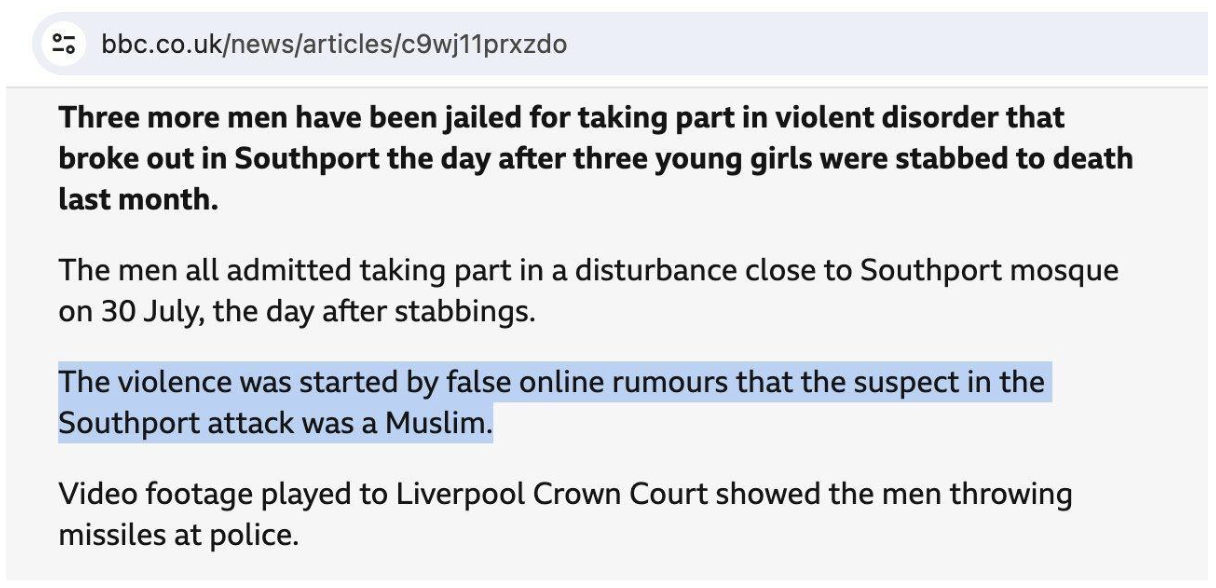The motivations of the man who entered a Taylor Swift-themed Birthday party to attack the young girls in attendance have now been made public. Unsurprisingly, it was motivated by Islamism. Axel Rudakubana is facing charges of making a biological weapon and possessing a jihadi terror manual. After months of accusations of prejudicial Islamophobia, there are questions to which the British public want answers.
How much did the authorities know about the motivations of the attacker? And when?
Following the riots in the wake of the attack, Ayaan carefully noted in her piece Two-Tier Keir that the police had not yet released any information about the motive, and therefore did not state anything concrete about the motivations of the attacker which were kept hidden from us by the authorities until today.
But many had their strong suspicions. Understandably so. Pattern recognition is a powerful function of the human brain.
It is not the first time that this kind of horror has been unleashed on British streets in the name of radical Islam. It is not even the first time that a group of innocent young girls have been deliberately targeted. In Manchester, on 22 May 2017, 22 victims were blown up and 1,017 injured at a performance of their idol, Ariana Grande. This Summer, it was young girls at a birthday party enjoying a taste of this year’s global Taylor Swift mania.
The accounts of the attack are horrific. 11 young girls were savaged by Axel Rudakubana, with three of them killed, two of them at the scene and one dying later from her injuries in hospital. Witnesses, describing the event to the BBC, recounted that it was “like a scene from a horror movie” with sinister screaming and “several young children bleeding in the road”.
This is not hysteria. It is the horror wrought on our society by our inept authorities. Authorities which were intent on drip-feeding information about the attacker as tensions in response to the attack began to brew. These finally boiled over into the outrage and violence which were seen in pockets across the country. As Dominic Cummings likes to remind his readers, in the midst of all these failings, “the system is working as intended”.
Are the British public now allowed to ask the questions which they were harangued by the BBC for even hinting at in the aftermath of the attack? Axel Rudakubana was from a Rwandan Christian family. Where was he radicalised? And how? Which mosque, if any, did he attend?

One BBC article blamed the subsequent riots on “untrue claims that the attacker was a Muslim” while another suggested that his being a Muslim was a “false online rumour”. Disturbances erupted outside of the Southport Mosque with a number of protestors arrested for violence and incitement, leading Sir Keir Starmer to condemn Islamophobia and far-right thuggery in his first speech after the attack.
The riots were partially fuelled by the feeling that facts regarding the attack and the attacker’s identity were being kept from the public. Usually, the authorities favour getting ahead of the issue and stating their suspicions.
In the immediate aftermath of the Mannheim attack in Germany, for example, the German authorities were open about their suspicions while being honest about the initial limitations of their investigations. On 31 May, Afghan refugee Sulemain Ataee stabbed six people, killing a police officer. On that same day, investigators shared openly that he probably acted out of Islamist motives. There was widespread condemnation, but there was no rioting.
Read it all in Courage Media



